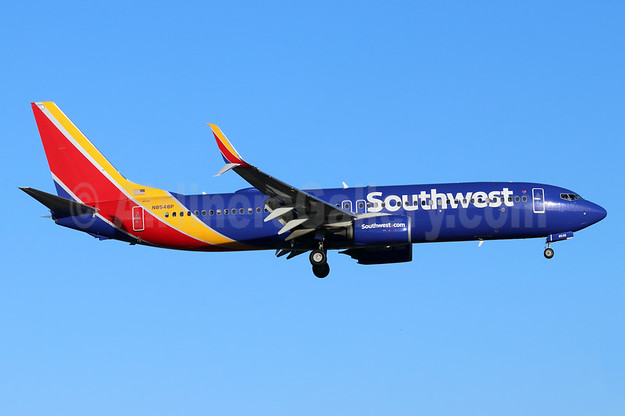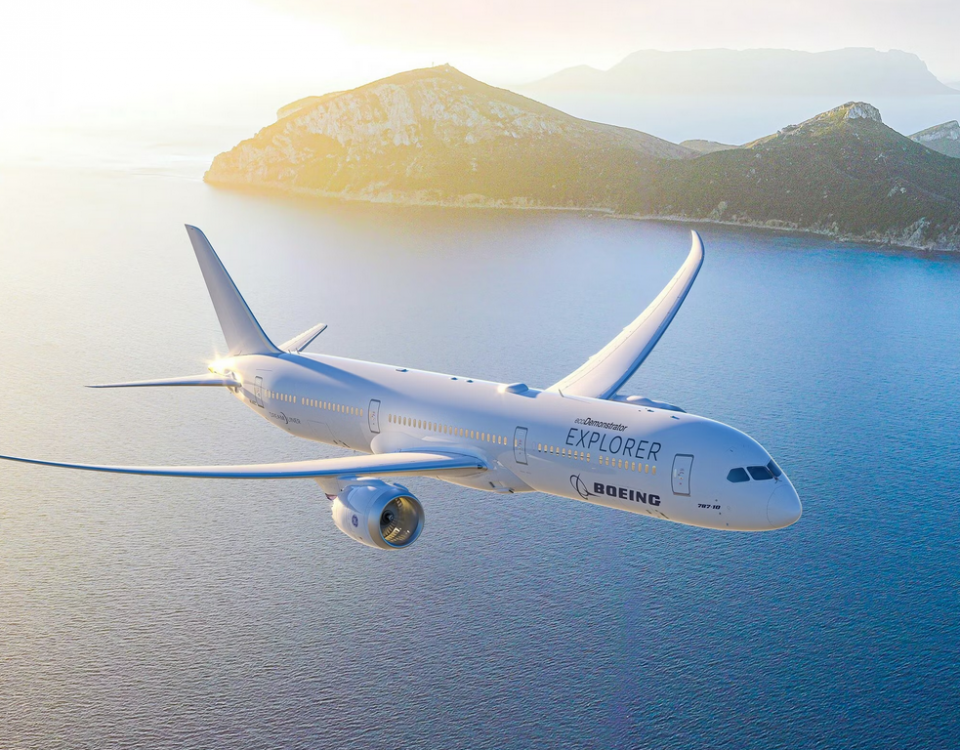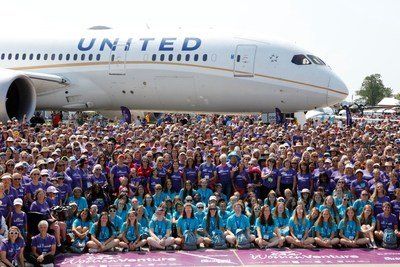
United Airlines Flies 787 Dreamliner With All-female Crew to World’s Largest Airshow
July 25, 2019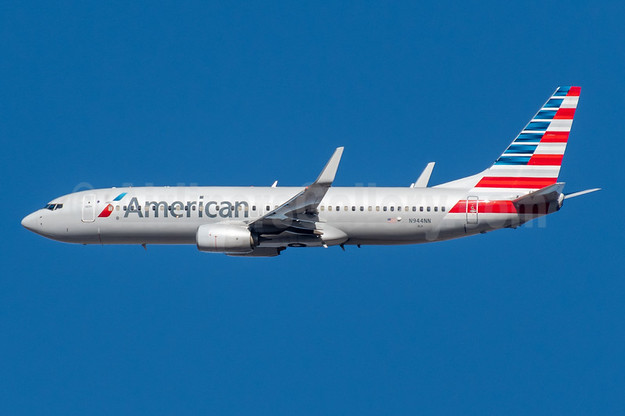
American Airlines Group reports second quarter 2019 profit
July 26, 2019Southwest Airlines Company today reported its second quarter 2019 results:
- Second quarter record earnings per diluted share of $1.37
- Record quarterly operating revenues of $5.9 billion; net income of $741 million
- Operating margin of 16.4 percent, and net margin of 12.5 percent
- Operating cash flow of $966 million; free cash flow of $736 million; returned $548 million to Shareholders through share repurchases and dividends
- Return on invested capital (ROIC) pre-tax of 23.4 percent for the 12 months ended June 30, 2019, or 18.2 percent on an after-tax basis
Gary C. Kelly, Chairman of the Board and Chief Executive Officer, stated, “We are pleased to report second quarter 2019 net income of $741 million, and a second quarter record earnings per diluted share of $1.37. Our financial and operational performance was remarkably strong considering the impact of the grounding of the Boeing 737 MAX 8 aircraft (MAX), which reduced operating income an estimated $175 million in second quarter, alone. We generated record revenues, strong margins and cash flows, a healthy profitsharing accrual for our Employees, and significant returns for our Shareholders—all notable achievements. Our Employees did a heroic job managing approximately 20,000 flight cancellations under operationally difficult circumstances, while delivering excellent Customer Service. I applaud their hard work and resilience through an unprecedented challenge for our Company.
“Boeing reported last week a $4.9 billion after-tax charge for ‘potential concessions and other considerations to customers for disruptions related to the 737 MAX grounding.’ We have had preliminary discussions with Boeing regarding compensation for damages due to the MAX groundings. We have not reached any conclusions regarding these matters, and no amounts from Boeing have been included in our second quarter results.
“Second quarter 2019 unit revenues grew 6.8 percent, year-over-year. We benefited from a healthy revenue environment and strong performances from our award-winning Rapid Rewards® loyalty program and ancillary boarding products. Strong Customer demand, combined with the MAX-related flight schedule adjustments, drove our load factor to an all-time quarterly high 86.4 percent. Our revenue management capabilities implemented in 2018 also continue to deliver year-over-year benefits. Looking ahead to third quarter 2019, we are expecting another strong year-over-year unit revenue performance.
“The MAX groundings, and the resulting available seat mile (ASM, or capacity) decline, put significant pressure on second quarter 2019 unit costs. We expect unit cost penalties for second half 2019 due to the MAX groundings, as well.
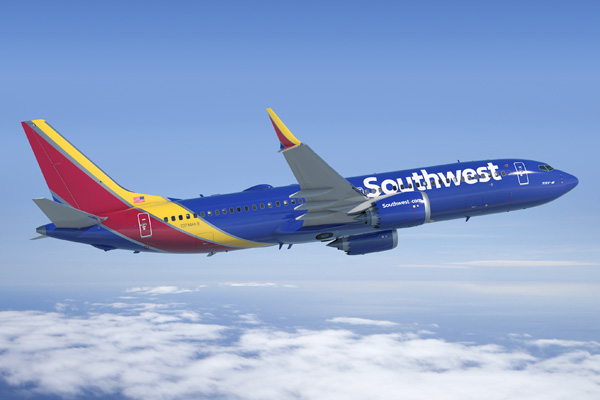
“Based on the most recent guidance from Boeing, we currently are assuming regulatory approval of MAX return to service during fourth quarter 2019. With this in mind, we will proactively extend the MAX-related flight schedule adjustments through January 5, 2020, to provide reliability of our operation and dependability for our Customers booking their fall and holiday travel. Following a rescission of the Federal Aviation Administration (FAA) order to ground the MAX, we estimate it will take us one to two months to comply with prospective FAA directives, including all necessary Pilot training. The FAA will determine the timing of MAX return to service, and we offer no assurances that our current assumptions and timelines are correct. The vast majority of our Customers’ itineraries have been unaffected by the MAX groundings, and I commend our People for their extraordinary efforts to minimize disruption to our operations.
“Based on the extensive delays in returning the MAX to service, we expect that annual 2019 ASMs will now decrease in the 1 to 2 percent range, year-over-year, compared with our original 2019 plan to grow capacity nearly 5 percent, year-over-year. As such, we are taking necessary steps to mitigate damages and optimize our aircraft and resources. We will cease operations at Newark Liberty International Airport and consolidate our New York City presence at New York LaGuardia Airport, effective November 3, 2019. The financial results at Newark have been below expectations, despite the efforts of our excellent Team at Newark. I am grateful to our wonderful Newark Employees, who are a top priority, and will be given an opportunity to relocate to another station in our system, including LaGuardia Airport, where we are experiencing strong Customer demand. As part of this move, we will offer options and flexibility for Customers to recover planned travel from other area airports.
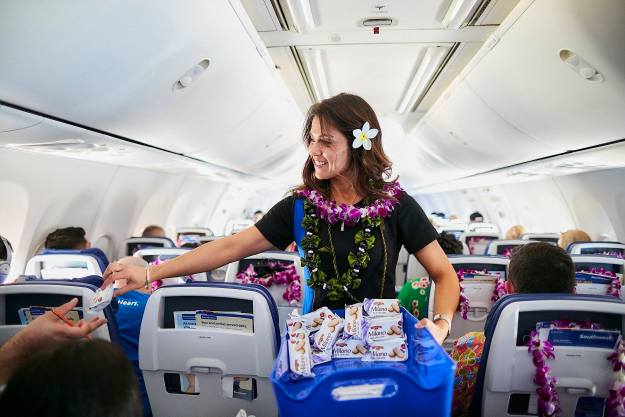
“We are very pleased with the results from our initial waves of Hawaii service, which began back in March. Demand for Southwest service to, from, and within Hawaii is robust. While the lack of available aircraft, due to the MAX groundings, resulted in expansion delays to Hawaii, we are excited to resume growth plans next month with the first of several intended announcements. We will offer service to the Islands from both Sacramento and San Diego, as well as bring Southwest service to both Lihue, on Kauai, and Hilo, on the Island of Hawaii. We will provide details of the next phases of Hawaii flying in the coming weeks and months, as we put new flights out for sale. We are also excited to announce our intention to offer more service to Mexico, via Cozumel International Airport, in first quarter 2020, subject to requisite governmental approvals. With Cozumel, we will serve four destinations in Mexico, with year-round service from Houston Hobby.
“Despite challenges caused by the MAX groundings, our network is performing well, and our financial outlook for second half 2019 remains solid. Looking ahead, our long-term financial goals remain unchanged: maintain a strong balance sheet, investment-grade credit ratings, and ample liquidity; generate robust operating and free cash flows; grow earnings, margins, and capital returns; and maintain healthy Shareholder returns.”
Revenue Results and Outlook
The Company’s second quarter 2019 total operating revenues increased 2.9 percent, year-over-year, to an all-time quarterly record $5.9 billion, despite the negative revenue impacts as a result of flight schedule adjustments due to the MAX groundings. Second quarter 2019 operating revenue per ASM (RASM, or unit revenues) increased 6.8 percent, year-over-year, driven largely by a passenger revenue yield increase of 4.2 percent, year-over-year, and a load factor increase of 1.7 points, year-over-year, to an all-time quarterly record 86.4 percent. Second quarter 2019 year-over-year RASM benefited by approximately one point from revenue management enhancements implemented in 2018, as well as an approximate three-point tailwind—with one point related to the Company’s second quarter 2018 suboptimal schedule from the 2017 accelerated retirement of its 737-300 (Classic) fleet, and two points related to the revenue effects from the Flight 1380 accident in April 2018. Further, second quarter 2019 year-over-year RASM benefited by an approximate one-half point due to the timing shift of Easter to second quarter 2019, and by approximately two points as a result of lower second quarter 2019 ASMs due to the MAX groundings.
Currently, passenger booking and revenue trends remain strong, and the Company expects third quarter 2019 RASM to increase in the range of 3 to 5 percent, compared with third quarter 2018. The Company’s outlook for third quarter 2019 year-over-year RASM includes an estimated one-point tailwind—approximately one-half point is related to the Company’s third quarter 2018 suboptimal schedule from the 2017 accelerated retirement of its Classic fleet, and approximately one-half point is due to the revenue effects from the Flight 1380 accident in April 2018. Additionally, third quarter 2019 year-over-year RASM is expected to benefit by an estimated two points as a result of lower third quarter 2019 capacity due to the MAX groundings.

Cost Performance and Outlook
Second quarter 2019 total operating expenses increased 3.6 percent, year-over-year, to $4.9 billion. Total operating expenses per ASM (CASM, or unit costs) increased 7.5 percent, compared with second quarter 2018. Excluding special items3, second quarter 2019 total operating expenses increased 3.5 percent to $4.9 billion, or 7.4 percent on a unit basis, year-over-year.
Second quarter 2019 economic fuel costs3 were $2.13 per gallon and included $.05 per gallon in premium expense and $.06 per gallon in favorable cash settlements from fuel derivative contracts, compared with $2.21 per gallon in second quarter 2018, which included $.06 per gallon in premium expense and $.08 per gallon in favorable cash settlements from fuel derivative contracts. Second quarter 2019 ASMs per gallon, or fuel efficiency, decreased 1.7 percent, year-over-year, due to the removal of the Company’s most fuel-efficient aircraft from its schedule as a result of the MAX groundings. The Company expects third quarter 2019 fuel efficiency to decrease in the range of 1 to 2 percent, year-over-year, as a result of the MAX groundings.
Based on the Company’s existing fuel derivative contracts and market prices as of July 19, 2019, third quarter 2019 economic fuel costs are estimated to be in the range of $2.05 to $2.15 per gallon4, including $.04 per gallon in premium expense and no cash settlements from fuel derivative contracts, compared with $2.25 per gallon in third quarter 2018, which included $.06 per gallon in premium expense and $.10 per gallon in favorable cash settlements from fuel derivative contracts. As of July 19, 2019, the fair market value of the Company’s fuel derivative contracts for the remainder of 2019 was an asset of approximately $13 million, and the fair market value of the hedge portfolio settling in 2020 and beyond was an asset of approximately $158 million. Additional information regarding the Company’s fuel derivative contracts is included in the accompanying tables.
Excluding fuel and oil expense and special items, second quarter 2019 operating expenses increased 6.6 percent, compared with second quarter 2018. Second quarter 2019 profitsharing expense was $170 million, compared with $166 million in second quarter 2018. Excluding fuel and oil expense, special items, and profitsharing expense, second quarter 2019 operating expenses increased 6.8 percent, or 10.9 percent on a unit basis, year-over-year. Approximately six points of this year-over-year unit cost increase was due to the MAX groundings and the resulting lower second quarter 2019 capacity, as the Company’s operating costs are largely fixed once flight schedules are published. The year-over-year increase of 10.9 percent in second quarter 2019 CASM, excluding fuel and oil expense, special items, and profitsharing expense, was better than expected primarily due to the shifting of advertising and maintenance expenses to future quarters, favorable airport settlements, and solid cost control.
Based on current cost trends, the Company estimates third quarter 2019 CASM, excluding fuel and oil expense and profitsharing expense, to increase in the 9 to 11 percent range, compared with third quarter 2018. Prior to the MAX groundings, the Company expected third quarter 2019 CASM, excluding fuel and oil expense and profitsharing expense, to increase approximately 2 percent, year-over-year. Approximately seven points of the expected incremental year-over-year unit cost increase in third quarter 2019 are driven by lower third quarter 2019 capacity as a result of the MAX groundings. Additionally, the Company expects approximately one point of year-over-year unit cost pressure in third quarter 2019, primarily due to the shift in spending from the first half of 2019 into third quarter 2019.
Based on current cost trends and planned flight schedule reductions for the MAX through January 5, 2020, the Company estimates annual 2019 CASM, excluding fuel and oil expense and profitsharing expense, to increase in the range of 8 to 10 percent, year-over-year, compared with annual 2018’s 8.53 cents, which excludes fuel and oil expense, special items, and profitsharing expense. The increase from the Company’s previous annual guidance of a year-over-year increase in the range of 5.5 to 6.5 percent is primarily due to removing the MAX for the remainder of 2019 and the resulting lower 2019 capacity, which drives an estimated six point year-over-year unit cost increase to annual 2019.

Second Quarter Results
Second quarter 2019 net income was $741 million, or a second quarter record $1.37 per diluted share, compared with second quarter 2018 net income of $733 million, or $1.27 per diluted share, and compared with First Call second quarter 2019 consensus estimate of $1.34 per diluted share.
An increase in interest income in second quarter 2019 resulted in a net $12 million decrease in other expenses compared with second quarter 2018.
The Company continues to estimate its annual 2019 effective tax rate to be approximately 23.5 percent.
Liquidity and Capital Deployment
As of June 30, 2019, the Company had approximately $4.0 billion in cash and short-term investments, and a fully available unsecured revolving credit line of $1.0 billion. Net cash provided by operations during second quarter 2019 was $966 million, capital expenditures were $230 million, and free cash flow was $736 million. The Company repaid approximately $75 million in debt and finance lease obligations during second quarter 2019, and expects to repay approximately $416 million in debt and finance lease obligations during the remainder of 2019.
During second quarter 2019, the Company returned $548 million to its Shareholders through the repurchase of $450 million of common stock and the payment of $98 million in dividends. The Company repurchased 5.8 million shares of common stock pursuant to a $400 million accelerated share repurchase (ASR) program launched during second quarter, representing an estimated 75 percent of the shares expected to be repurchased under that ASR program. The ASR program is scheduled to terminate no later than July 29, 2019. In addition, the Company repurchased $50 million of its shares of common stock on the open market under an additional share repurchase plan. In May 2019, the Company’s Board of Directors increased the Company’s quarterly dividend by 12.5 percent to $.18 per share, and authorized a new $2.0 billion share repurchase program. Subsequent to completion of the current ASR program, the Company will have $2.4 billionremaining on its share repurchase authorizations.
Due to the delay in MAX deliveries, and based on current guidance from Boeing assuming regulatory approval of MAX return to service during fourth quarter 2019, the Company now estimates its annual 2019 capital expenditures to be in the range of $1.2 billion to $1.3 billion, compared with its previous guidance in the range of $1.9 billion to $2.0 billion.

Fleet and Capacity
The Company ended second quarter 2019 with 753 aircraft in its fleet. All 34 of the Company’s MAX aircraft were grounded as of March 13, 2019, to comply with the FAA emergency order issued for all U.S. airlines to ground all MAX aircraft. While the Company’s contractual delivery schedule with Boeing has not changed, a portion of its scheduled 2019 aircraft deliveries are expected to shift into 2020. As a result of the MAX groundings, the Company deferred the retirement of 7 of its owned 737-700 aircraft; therefore, the Company now plans to retire 11 of its 737-700 aircraft in 2019.
Additional information regarding the Company’s aircraft delivery schedule is included in the accompanying table.

Based on planned flight schedule reductions for the MAX through January 5, 2020, the Company now expects third quarter 2019 ASMs to decrease in the 2 to 3 percent range, and annual 2019 ASMs to decrease in the 1 to 2 percent range, both year-over-year.
The Company’s assumption of regulatory approval of MAX return to service during fourth quarter 2019 is subject to Boeing’s ongoing work with the FAA, who will determine the timing of MAX return to service. Any changes to these assumptions could result in additional flight schedule adjustments and reductions beyond January 5, 2020, further delays in aircraft deliveries, and additional financial impacts.
In other news, Southwest will cease operations at Newark on November 3 and consolidate New York operations at LaGuardia Airport.


